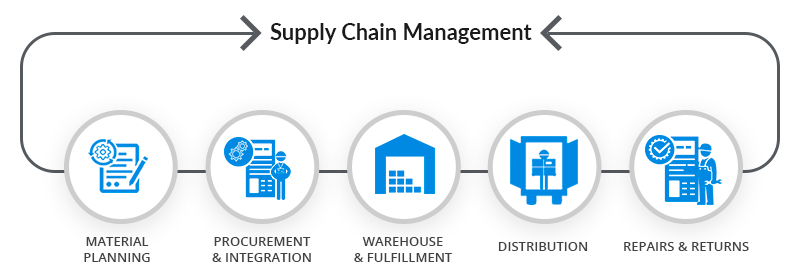
What is Supply Chain Management?
Supply Chain Management is known as the active management of activities, required for enhancing your customer value and attaining a competitive edge with respect to your market rivals. However, it requires a conscious effort from the supply chain firms for efficient functioning. The activities involved in supply chains are product development, sourcing, production, logistics, and information systems for proper coordination.
What are the seven takeaways to attain efficient Supply Chain Management?
The following are some easy yet accomplishing things you could do for an efficient supply chain management.
Look at the things from a Customer’s viewpoint:
Developing a customer-centric supply management protocol is the first step towards brand growth. The client looks at your way of presenting your products and services before considering the factors like price, availability, quality, purpose, and features.
These are the outward appearance of the products and services. The inner aspect consists of the policies and processes that are needed for your supply chain to deliver the products on the said date, which creates positive experiences for your customers.
Focus on your Goals:
You need to have well-defined goals and deadlines. A missed date can wreak havoc for your business. Thus, it is important to partner with experts such as ComActivity, who can help you keep track of your projects and deliver things as per your client’s requirements.
Find reliable Suppliers:
In the business world, every producer knows the importance of having suppliers for their products. An organization may choose to go for only a wholesaler, retailer, or both when it comes to getting the availability of their product out in the market. If you are looking for reliable suppliers, you should consider other factors apart from cost.
Adapt to new Technologies:
The technology you use plays a vital role in improvising the supply chain management. Apart from getting a reliable ERP tool, you should also invest in Warehouse Management Systems. They will enable you to track your order, document, and evaluate your SCM’s effectiveness over some time. The companies aspiring for high-level supply chain management also invest in transport management software.
The technology also includes computerized shipping and tracking systems, which help in integrating the operations under a single panel. You can also have that panel in your mobile for organizing your inventory data, managing the shipping, monitor the distribution in your office in any part of the world.
The technology also helps the companies to avoid monotonous manual intervention and make quick decisions to grab a competitive edge over others in the market.
Prompt Customer Service:
There are times when a customer receives defective products or wrong items. Sometimes, some of the products go missing when they are in transit. When the product delivery gets delayed, then you need to give an update on the delivery status.
Excellent customer service through supply chain management helps in establishing a long-term relationship with them. A happy customer also provides a positive word of mouth on your supply chain management, which improves your business.
Invest in developing your Workforce:
An SCM worker checks the operational efficiency and resolves the issues when it comes to goods or services. Investing in employee development comprises product training, soft skills, multiple assignments to develop the products, and dealing with various types of customers across the globe.
Think out of the box:
Motivating your staff for innovative thinking helps in improving your productivity. As the competition increases, you may encounter difficulties in generating revenue for the products that you have. Creative thinking acts as a backup plan for the smooth functioning of your business.
Conclusion:
Many factors can affect supply chain management. Hence, you need to understand that each customer has different ways of looking at things.


